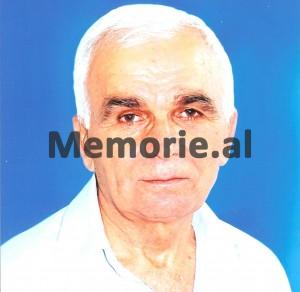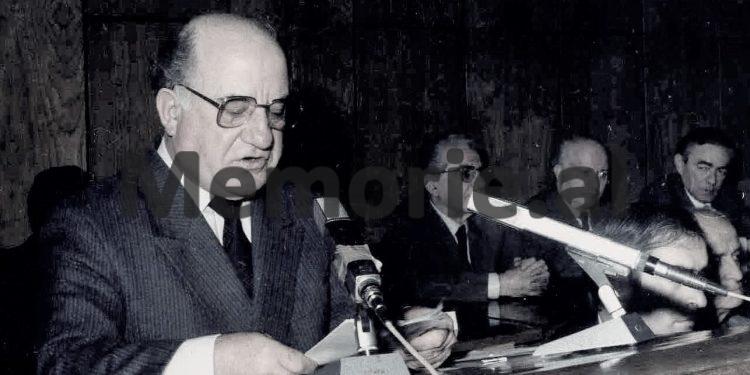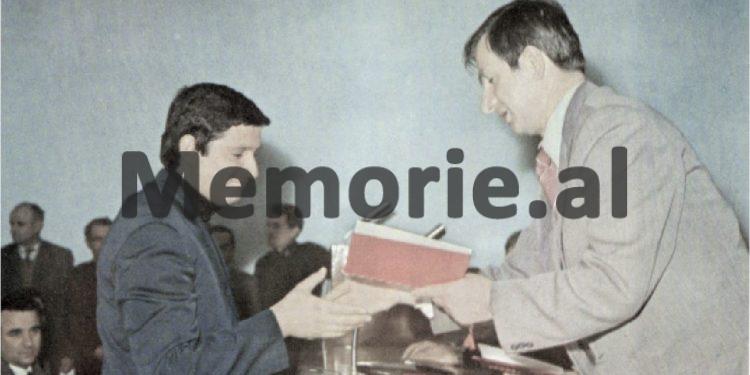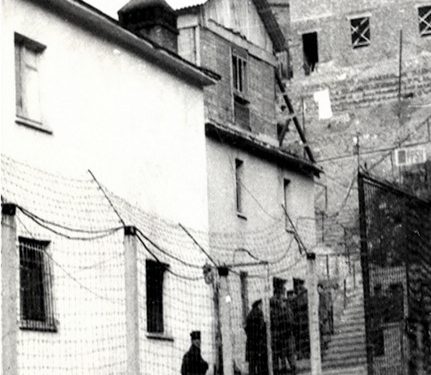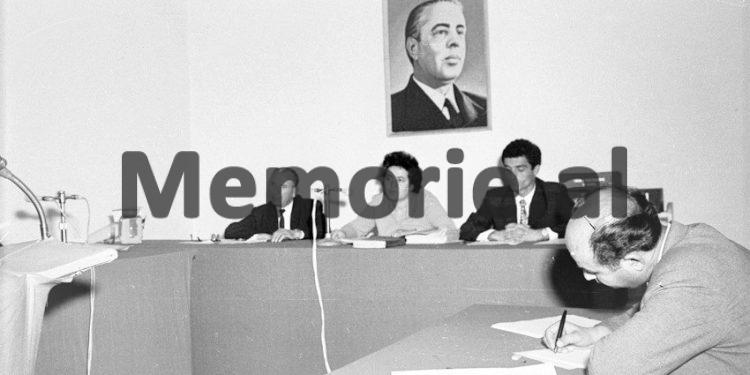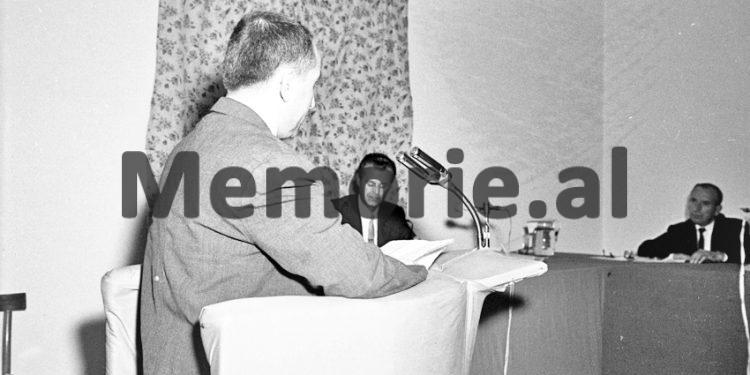By Ahmet Collaku
Memorie.al / On my desk I have several sheets cut from the so-called “Black Paper” file, which summarizes the accusations against the geologist Kadri Rama. “…R.P.SH… Fier District Court…” They were six oil specialists who had the same opinion and put it on a regular paper, on a white paper. Later, someone baptized him with the name; “Black Paper”. Then, from that initially professional battle, which later turned into an ideological one, four of the initiator authors withdrew. So only two remained: Kadri Rama and the wise to the point of pain Elmas Nika. They did not retreat. Vlonia!
Geologist Kadri Rama, calm and convinced, said that this work has been entrusted to us and we know how it is done and bear responsibility for it. This was his “Meshari”. These words, which will be remembered for many years, made him an enemy, and turned his white paper into black. Kadri was burned in the mine of Batra, while Elmaz, in Pukë. After that, the arrest and prison in Spaç would not be long for Kadri.
Years would come without freedom, without sun, without children, without eyes, without mouth, only a beating and hoping heart. He spent six years as an underground worker in Spaç, with three shifts, and almost as many more years in Qafë Bari. I feel that within this feigned calmness there is an inner temptation, there are two foci of burning hatred: The first is against the monism that has gone, and the second is against this supposed democracy, which will not know what things did and what shadow did that letter that was called; “Black Paper”!
Mr. Kadri, thank you for giving me the opportunity to talk about your personality as a person and as a geologist, but no luck, both for you and for our oil. For that oil, which since 1918, when it was tested for the first time, has been directly and indirectly at the epicenter of foreign countries. But, to begin with, could you very briefly tell me your biography, your life and professional background?
I was born in 1940 in Radhimë, a small village, 12 kilometers south of Vlora, in a large patriarchal family, in good economic condition. I spent my childhood in the village. In the years 1953-1957, I completed secondary school in Tirana, at the former Harri Fultz Technical School. I didn’t get the right to study, because my family hadn’t joined the cooperative yet. In the years 1957-1960, I worked as a geological technician in the Geological-Topographic Enterprise in Tirana. In the period 1960-1965, I graduated from the University, Faculty of Geology-Mining, in Tirana.
In August 1965, I started working as a well geologist in Fier, and after a year and a half I was transferred to the Petroleum Institute in Kučovo. On April 6, 1976, I was arrested and sentenced to 20 years in prison for sabotage, a crime I did not commit. After 12 years and three months in prison, I was released on bail, by decree no. 7227, dated 27.6.1988, of the Presidium of the People’s Assembly. From 1988 to 1993, I worked at the Research Enterprise in Patos.
Let’s go back to the origin of your pains… Why were you sentenced and where did you serve your sentence?
I was sentenced, like many, without guilt, just to scare others and to be used as a slave, to extract copper ore from unusable mines. In the summer of 1974, in the cinema hall in Fier, a large asset was gathered for oil. Discussions were requested in writing and signed. From reading them, he, the “Greatest” “discovered the sabotage work in oil”, and did not harm just one, but several Albanians. After the arrest of the “enemy oil group”, in the spring of 1975, an “immunized one”, an all-powerful one, was placed at the head of the Oil Institute.
For 1976, the Petroleum Institute was tasked with discovering a new oil field. After many discussions in the Scientific Council, the theme of 1976 was approved and sent “up”. The thematic plan was reversed, with caveats. In a long meeting for the revision of the plan based on the remarks, it turned out that the plan approved by the Scientific Council was not forwarded “above”, but another material. For this, the “almighty” gave us some confusing answers and did not clarify. When the meeting closed at 10:00 p.m., the conclusions were left to be made in the morning, and we were instructed to make the proposals in writing, and at 10:00 a.m., they would leave for Tirana.
The day after yesterday, as soon as the work started, in Elmaz Nika’s office, he and I started writing the discussion. There were also two colleagues from the office. By chance, two more geologists were added and, after writing a page and a half, we added our six names, but not our signatures. We were waiting for the breakfast meeting, but in the meantime we were told that the car left for Tirana!!! They ordered us to hand over the discussions to the secretary of the party bureau of the Institute. So we added to the discussion paper: “Petroleum Institute Party Bureau,” and the date January 15, 1976, and submitted it.
On February 3, 1976, suddenly, the greats of the ministry and of Fier came to the institute. They called all six of us and attacked us with questions: “What is this letter? Who wrote it? Why did you write it? This is black paper, it is hostile”, and others, and others…! The four of them retreated. They said they gave the name without thinking, and so on. Elmazi and I defended our opinion. I said more or less these words: “This work has been entrusted to us, and we know how it is done, and we are responsible for it.”
These words were twisted and commented on according to appetites. Eventually the discussion was called hostile, the Letter was called “hostile letter”, and we, “enemies”. Further, we were unmasked according to custom in a large group and were sent for “re-education” in the heart of the working class, me in Batra Mine and Elmaz Nika in Pukë. On April 6, in the morning, in the bus full of workers, which was taking us from Krasta to the mine, I was arrested.
What was the “crime”??!!
We, in our discussion, proposed that in order to realize (guarantee) the discovery of the source within the year, we should choose the two or three most prepared structures and attack them with many wells at once, due to the very nature of our structures, which are ready as vertical walls, beyond the capabilities of seismic to accurately determine their spatial position. The order of the party was: “with the first projectile at the target”!? We put Cakrani, Osmanzeza and others at the top of the list of structures.
After nine months of investigation, I was sentenced to 20 years of deprivation of liberty, with confiscation of property and others. I have with me two sheets of the decision and the list of confiscated “property”: This was called “property”, because supposedly we were the most paid!? I served the sentence: six years underground worker with three shifts, in Spaç and five and a half years, underground worker with three shifts, in Qafë-Bari. The rate was mandatory: 5 wagons of 3 tons each, fill them and take them out.
I remember that you were very fond of Albanian petroleum geology. Your arguments came to the minds of many colleagues and friends. Do you still have that passion for geology?
Not only has my passion not fallen, but on the contrary, it is increasing, because even the days are getting shorter! Every day my mind stays there. So far I have made dozens of attempts to get someone to listen to me, but to no avail. What to do, when they are at the top, but with a different costume?!
Where is your greatest contribution, in surveys, in generalizations or in designs?
In geological surveys. I had the good fortune to start working, before turning 18, in surveying with two old Russian geologists. I worked with them for two and a half years in the region from Kukësi to Shkodër. They taught me the habits of observation. I was constantly told: “Don’t wait to see what you think, but accurately describe what you see.” Very quickly I learned to work with them, as an equal. They had a lot of faith in my careful work.
Then I worked for 6 months with Albanian geologists in the Elbasan-Përrenjas region (on the southern side of Shkumbin). Even when I continued university, I worked for a month every summer in the field, with the friends of the Tirana Enterprise. I had a year and a half break from field work, when I was a well geologist in Kallm and Divjaka. When I moved to the Petroleum Institute, I started working in a survey group in the Mallakastra region. Then I worked mainly in surveys and revisions, and less in generalization groups. The field work, for the construction of the Geological Map in the prospective regions for oil, was simpler than in the north-eastern area, where I had worked before.
At the Institute, I found a simplified conception of depth interpretation, especially for tectonic detachments. For example, in 1967, when Gorishti had been discovered for a few years, there was no thought of drilling west of a tectonic break. Even when it was drilled to its west, it was thought that a new source (Koculi) was discovered. We have had many discussions about these problems. Even today there are petroleum geologists who do not fully understand this tectonic style.
Where did you design?
I participated in well designs, mainly in those regions where I performed field work: In Ninsh, Kalivaç, Vurg. In the latter, the well confirmed the existence of the Finic structure. Also, in Delvina, where the wells were drilled many years later, in Osmanzeze, where the last well was interrupted 540 ml, before reaching the project, by an unjust order of the Minister, two weeks before his government fell on February 6, 1991. Similarly, I also designed in Pekisht, Bisht-Palle, etc.
In your opinion, how is Albania’s perspective for oil and gas, is there or is there not? If you were given three probes, where would you put them?
I said before that I’m out on bail. Here’s how it happened. In the trial I claimed innocence, then I appealed the decision, then I made many written protests, even requests to prove my innocence, projecting from prison. Finally a request reached its destination. At the beginning of 1988, some envoys came to Qafë-Bari and asked me for explanations…! At the end of May of that year, I was transferred to Tirana prison.
On June 27, 1988, without saying a word to me, they took me from the prison unshaven, unshaven, with those slanderous prison clothes and a sack of rags. At 20:00 they took me to the office of the Minister of the Interior, where there was also a secretary and two deputy ministers. This dialogue took place:
Minister: “You wrote this letter”?!
Me: yes”.
Minister: “Do you stick to what you wrote”?
Me: yes”.
Minister: “Okay, we examined this letter and decided to forgive you.”
Me: “I didn’t ask for forgiveness, because I didn’t do anything wrong.”
The minister, after looking at me angrily: “Even we have not forgiven you, we have only forgiven you the remaining sentence…”!
Fifteen months later, the other minister, when informing me about the approval of two wells in Osmanzeze, wrote: “The appreciation and trust shown to you increases the legal and moral responsibility towards the interests of our state” (Prot. 11150-dt. 16.9 .1989). Memorie.al




